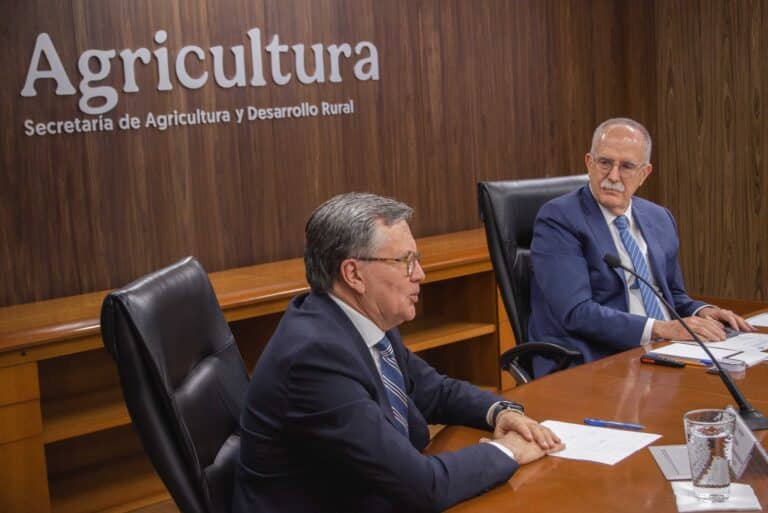The workshop intended to contribute to sustainable agriculture development on Saint Kitts and Nevis.

Basseterre, St. Kitts. Small-scale agro-processors on St. Kitts and Nevis are now better positioned, as business proprietors, to contribute to sustainable agriculture development thanks to the timely intervention by the Inter-American Institute for Cooperation on Agriculture (IICA) which conducted a one-and-a-half-day workshop on Food Labelling.
Assistant Secretary in the Federal Ministry of Agriculture, Natasha Daniel, who opened the workshop, commented that the workshop had come on the heels of a recently held marketing workshop for agro-processors.
“Today we move to another level of the marketing chain, labelling, where processors can better position themselves as business proprietors, contribute to sustainable agricultural development, assist in the reduction of poverty and malnutrition and reduce food wastage through agro-processing,” said Daniel.
The workshop which was organised by Augustine Merchant, IICA Representative for the St. Kitts and Nevis Delegation, was facilitated on the first day by Oriel Walters from Koncep Branding Antigua and I-Ronn Audain from the St. Kitts Bureau of Standards, while on the final day by Jihan Williams from the Federal Government Intellectual Property Rights office.
Audain’s presentation was on ‘Labels Standards and Regulation’ and Walter’s presentation was on ‘Labelling Design’, while Williams’ presentation was on ‘Intellectual Property Rights’.
Also in attendance on the first day was the IICA Representative for Antigua and Barbuda, Craig Thomas. Chairing the session was Andy Blanchette, Institutional Liaison to Agriculture.
“This workshop is being held with funding from the 10th European Development Fund Agriculture Policy Programme,” said Merchant. “This programme is being executed through an agreement signed between the European Union and IICA with other implementing bodies such as the Caribbean Agriculture Research and Development Institute (CARDI) and the CARICOM Secretariat.”
According to Merchant, the programme is being implemented within the context of two major challenges which agriculture faces in the CARIFORUM States, namely an increasing regional food import bill estimated at over 5 billion dollars annually; and Climate Change which is of particular significance to the Caribbean comprising largely of small island developing states with low lying coastal areas and deemed the second most prone in the world to natural hazards.
He said the main aims of the workshop were to enable small-scale enterprises in St. Kitts and Nevis, including women and youth to strengthen value added processes and marketing opportunities to meet the demands of retailers and consumers, and to strengthen the capacity to increase the volume, quality, standard and differentiation of local value added products.
“The label is the first point of contact between the consumer and producer,” Merchant informed the workshop participants. “It is used to identify one product from another and also to make a discussion over which product to purchase. The label is therefore the most important marketing tool for a product.”
“It should be attractive and eye-catching while at the same time being informative. A dirty confusing and untidy label will not help to sell a product. Small scale food processors should aim to label their products with the best label they can obtain or afford in relation to the product.”
On the first day the workshop participants were divided into four groups where they worked on label designs, and presentation of the work groups was done by group leaders, while feedback on presentation made by the groups was presented by Mr Oriel Walters. A number of the agro-processors brought their labels that they put on display, and which caught the eye of the Assistant Secretary for Agriculture, Ms Natasha Daniel.
“Labels should be attractive, eye catching while at the same time informative,” said Daniel. “I take pride in our very own local products, produce by the Agro-processing Unit and other agro-processors such as Connor’s D-Lightfully Sweet, Grandmas Special, which is nicely designed with our National Anthem theme, ‘Oh Land of Beauty’.
“We are on the right path. A dirty, confused, untidy label will not sell a product. Hence the importance of this workshop, to provide the guidance, techniques and know-how in order to better improve your product while at the same time making money.”
She encouraged the agro-processors to try their best to label their products with the best labels available and affordable in relation to the value of the product, pointing out that “the Ministry is here to support you and provide the necessary assistance to attain your goals.”
More information: augustine.merchant@iica.int











